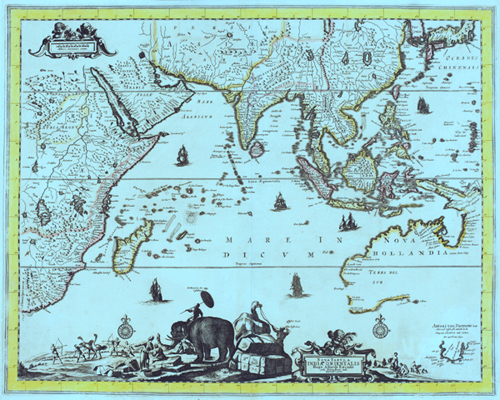
For many people, at least those living in the United States and other highly industrial and technologically advanced societies, the social and cultural environments of the Electronic Age have come to mean more than real flesh-and blood. In other words, the virtual world of mass media and its larger-than-life entertaining personalities are the images people carry around in their heads. Communications experts have also discovered that for most people these celebrities, politicians and news pundits are socially real and extremely influential. In fact, people act like them, dress like them, speak like them, behave like them, and talk to them-at least in their minds. (This explains the popularity of some talk-show hosts and the surges that mimic their words and views.)
I was reminded of this when Wikileaks released a 2007 video showing a U.S. gunship massacring unarmed civilians in Iraq. (They plan to release another video of U.S. aircraft bombing a Afghan village killing 140 civilians.) It was reminiscent too of when some of us, years ago, challenged U.S. hegemony and wars in Latin America. I once had the chance to travel with Ed Haase throughout Guatemala. He was a radio-journalist from Kansas City and after making frequent trips to Central America, he reported about the consequences U.S. militarization and the reoccurring atrocities. On one occasion, while returning from Nicaragua, he was detained by U.S. Customs officials. FBI agents interrogated him and seized his notes, diary, address book, and other Central American documents.
Not only did U.S. officials harass and question hundreds of other U.S. citizens returning from Nicaragua, but from other nations. I can still recall coming back to the U.S. from Guatemala and Custom officials photocopying my notes. Others were taken to private rooms and interrogated. Just as demoralizing were fellow citizens who did not want to hear about how U.S. military aid and advisers, including corporations and private security firms, were committing human rights abuses, assassinations, and massacres throughout Latin America. Many Americans had internalized the values of hyper-patriotism and the feelings of fun, entertainment, and I-don't-want-to-know-what-my-government-is-doing.
Ed Haase, a dedicated radio-journalist, eventually decided to leave the United States. He was an investigative journalist working in a corporate-owned and virtual world. The goal was to make people feel good, so they would buy the next advertised product and war. Ed Haase was critical of the news media, for it had imprisoned people in a virtual cage of feel-good and entertaining news and information. Instead of listening to others experiences or traveling and searching for certainty, for many a media-oriented virtual experience became the ultimate reality. Independent thinking and objective beliefs based on real and global experiences were replaced with manufactured thinking and contrived beliefs.
The magnetism of U.S. censorship is that people "think" they are free and knowledgeable, but they do not "know" they have internalized and have been imprisoned by a national-security-virtual-state. It purports fear, ignorance, confusion, misinformation and is highly selective in regards to the past and present. It induces false values and incorrect thoughts, which are far removed from the realities of the rest of the world. Wikileaks is to be commended for shattering a de-contextualized and virtual world, along with confronting those in the political, military, academic, and intelligence establishments. Already, at least one member has been detained and questioned and there have been numerous threats.
Wikileaks has also gained the attention of U.S. Defense Secretary Robert Gates, who condemned the group by claiming the military footage that showed U.S. forces killing civilians were out of context and provided an incomplete picture. They are also under surveillance and have probably been infiltrated. As they try to expose a secretive and clandestine government and its misguided military operations, let us hope U.S. citizens will be able to listen, observe and understand the realities and sufferings of others, especially in nations that are still being occupied by the United States


+copy.jpg)















.jpg)














.jpg)


No comments:
Post a Comment